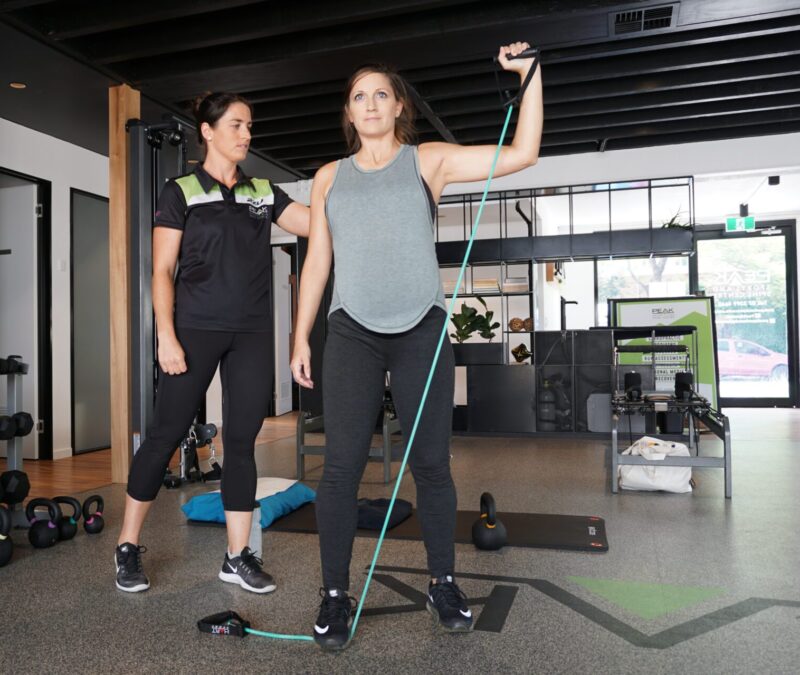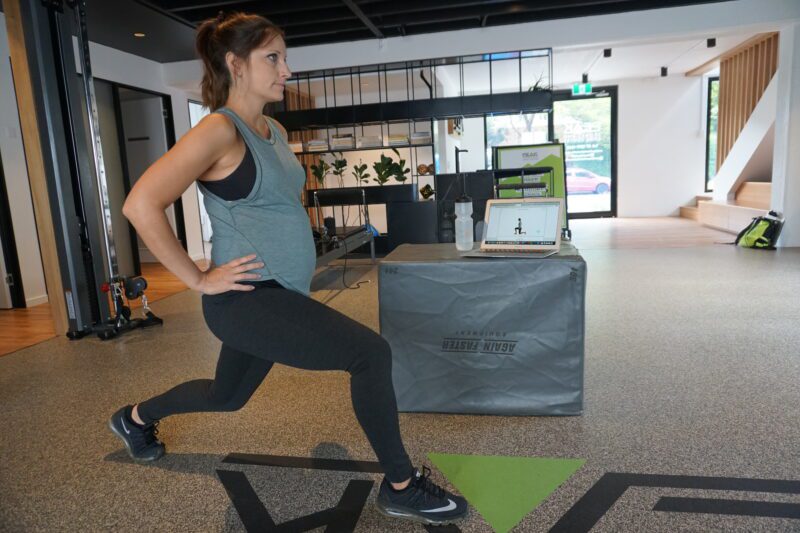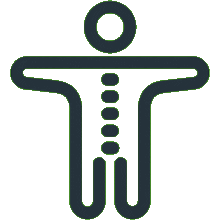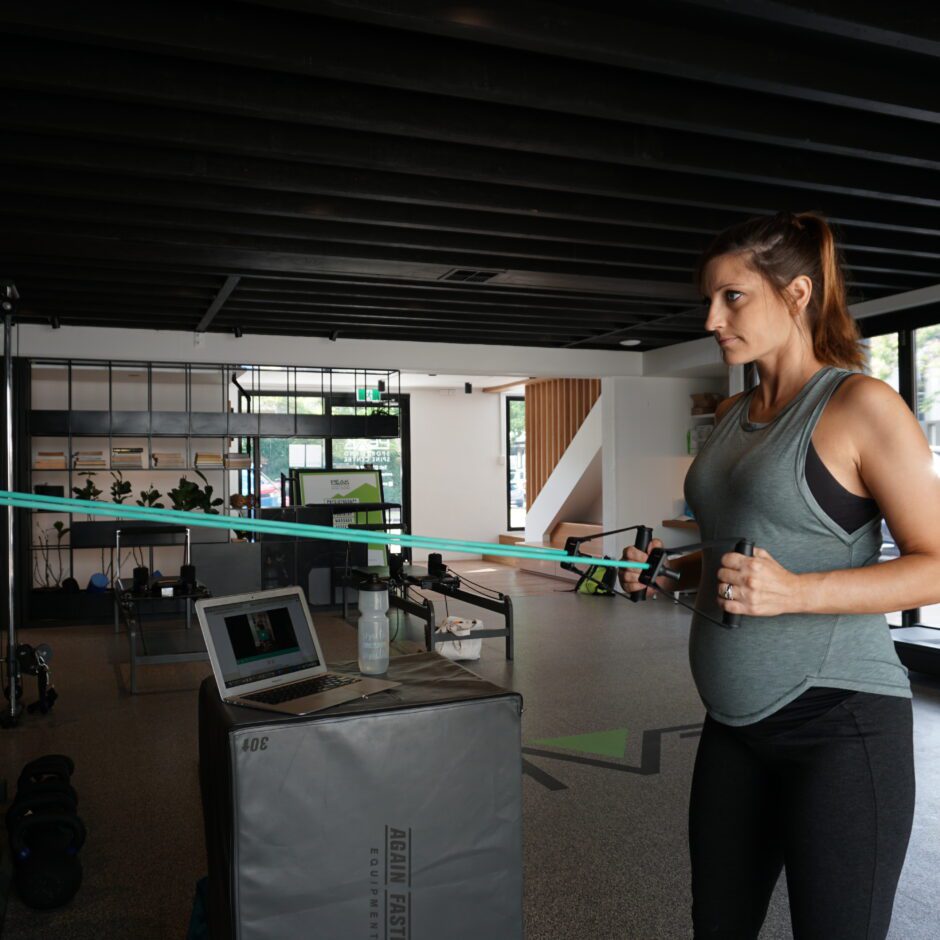There are many benefits of staying active during your pregnancy including:
- Preparing for labour and recovery
- Reducing risk of gestational diabetes, hypotension and pre eclampsia
- Preventing and managing back and pelvic pain
- Lowering risk of incontinence
- Better mental health, including a lower risk of postnatal depression

What should I be doing?
The current Australian guidelines state that if you have previously been active and have a healthy pregnancy without complications, you should follow the regular adult guidelines for exercises.
Guidelines
Accumulation of 150-300 minutes of physical activity per week that is made up of:
30-60 min of moderate intensity physical activity on most, and preferably all days of the week
Avoid exercise beyond 60 min per session, unless the intensity is relatively light, primarily due to thermoregulation concerns (over heating)
For previously sedentary individuals it is suggested to start with 3-4 days per week of 15-20 minutes duration
Both aerobic and strength & conditioning exercises are recommended
At least 2 sessions should be strength based
What does this mean for me?
The current Australian guidelines state that if you have previously been active and have a healthy pregnancy without complications, you should follow the regular adult guidelines for exercises. This means you can continue your usual gym, running or exercise routine. It is important to chat through what you usually do with your Women’s Health Coach as there may need to be some modifications made especially as your pregnancy progresses.
If you have not previously been active, some movement is better than none. It is safe to slowly start and increase your activity if you and your baby are healthy. You can start with lower impact exercises such as walking, swimming, yoga and/or guided strengthening exercises and build up from there. Your Women’s Health Coach can help guide you to do this safely.
It is important to listen to your body during this time; if you are experiencing pain or sickness it is important to rest or scale back activities.

What exercise should I do?
The guidelines state that a combination of aerobic and strength exercises are key. Aerobic exercise can include walking, running, swimming or bike riding. Yoga and pilates can also be good lower impact options. Strength exercises can include guided resistance training with free weights, resistance bands or weight machines.
How intense can I train?
The guidelines suggest that you aim for moderate exercise. The easiest way to monitor how hard you are working is using the ‘talk test’. Moderate exercise should equate to being able to just hold a conversation. Vigorous exercise is when you can only get a few words out at a time. Remember to listen to your body.
When is it not safe to exercise?
There are certain times when exercise may not be safe and this is an important conversation to have with your obstetrician, midwife or GP. This may include:
Persistent bleeding
Placenta praevia
Pre-eclampsia
Pregnancy induced hypertension
Risk of premature labour – multiple pregnancy, previous premature rupture of membranes, history of premature labour contractions or shortened cervical length
Anaemia
Fetal growth restriction
Poorly controlled thyroid disease
If you have any of the above, it is important to discuss this with your Women’s Health Coach in order for them to create a safe exercise program individualised to you.

Considerations
It is important to be aware of what modifications you can make to ensure what you are doing is safe. Things to be aware of include:
Temperature – being cautious to not overheat as your core temperature is higher
Swimming – ensure the temperature is no <33.4°C for up to 45mins
Sports that involve high impact
Movements that could increase risk of contact with your belly
Barbell work that may hit your stomach – change to dumbbells
Jumping over obstacles or handstands were you may fall
High impact movements that put increased pressure on your pelvic floor – box jumps, skipping
Pregnancy is an exciting time however can be overwhelming with lots of new information regarding what you should and shouldn’t be doing coming your way. Our women’s health coaches can help you navigate this time by helping set you up with a safe exercise routine or
program to ensure you are well supported. These can be completed within the setting of our prevention classes under the guidance of our physiotherapy coaches, individually at your own gym or as a home exercise program. If you have any further questions be sure to ask your Women’s Health Coach.
Erica Werner
Physiotherapist
Women’s Health Coach
Let's get started — How can we help?
Physiotherapy

Chiropractic

Podiatry

Massage Therapy

Women's Health Physiotherapy

Running Program Tailored To Your Goals

Joint Mobilisation

Active Release Technique

Exercise Prescription

Real Time Ultrasound Imaging

Spinal Manipulation

Functional Movement Screen

Knee Pain Treatment

Hamstring Strain Treatment

Hip Pain Treatment

Upper, Middle & Lower Back Pain

Neck Pain Treatment

Shoulder Pain & Rotator Cuff Tear

Can't find what you're after?
View all Services
Make an appointment
Or email the PEAK team at info@peakssc.com.au
Hawthorne
- Phone: (07) 3399 3318
- Fax: (07) 3319 6577
Address
5/171 Riding Road,Hawthorne, QLD, 4171 Get Directions
Opening Hours -
6 days per week
- Monday - Friday: 7:00 am - 8:00 pm
- Saturday: 7:00 am - 1:00 pm
To make a booking outside of business hours, please use our form by clicking here.
New Farm
- Phone: (07) 3399 4668
- Fax: (07) 3319 6577
Address
1/15 Lamington Street,New Farm, QLD, 4005 Get Directions
Opening Hours -
6 days per week
- Monday: 7:00 am - 8:00 pm
- Tuesday: 7:00 am - 8:00 pm
- Wednesday: 9:00 am - 8:00 pm
- Thursday: 10:00 am - 8:00 pm
- Friday: 7:00 am - 3:00 pm
- Saturday: 7:00 am - 3:00 pm
To make a booking outside of business hours, please use our form by clicking here.
